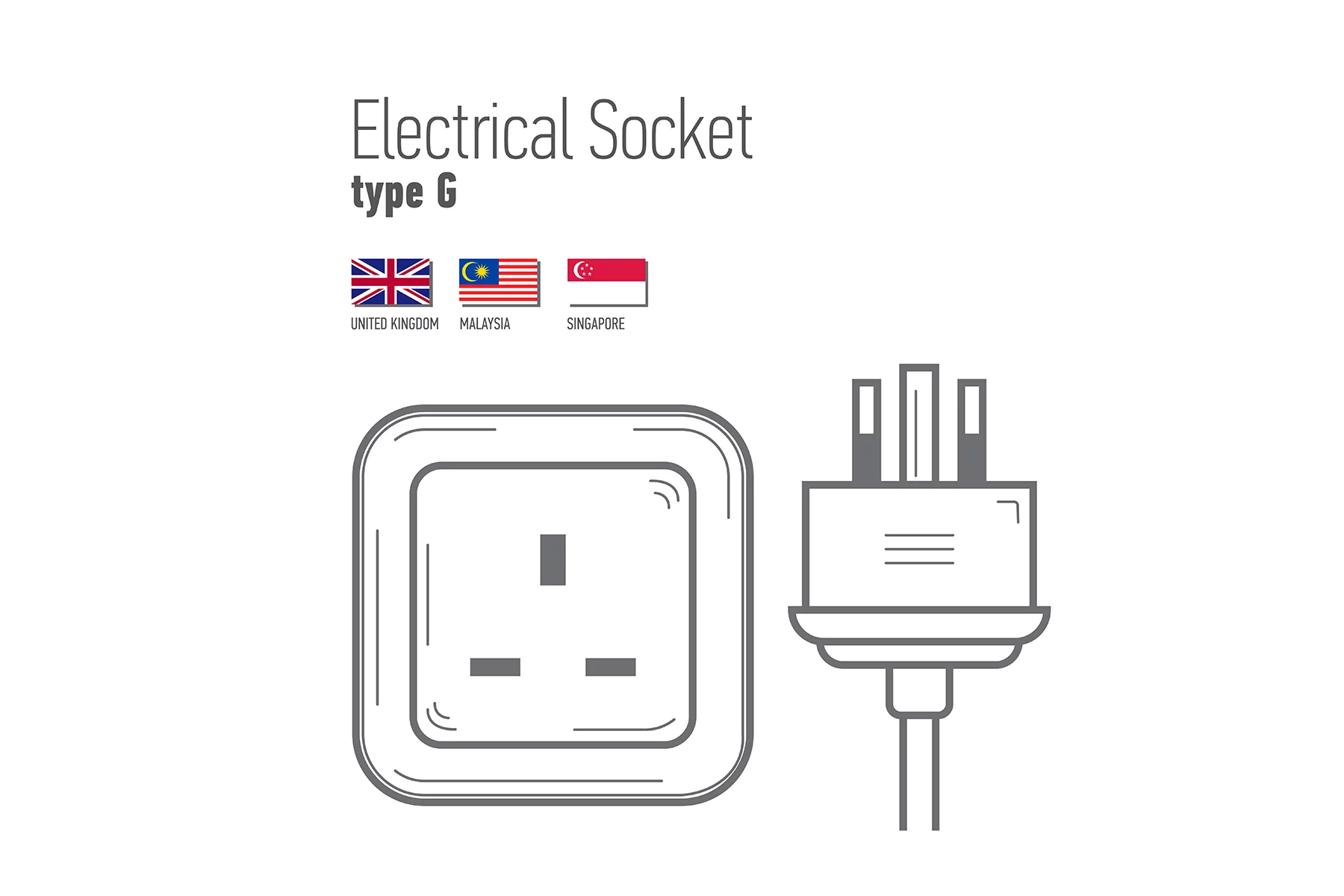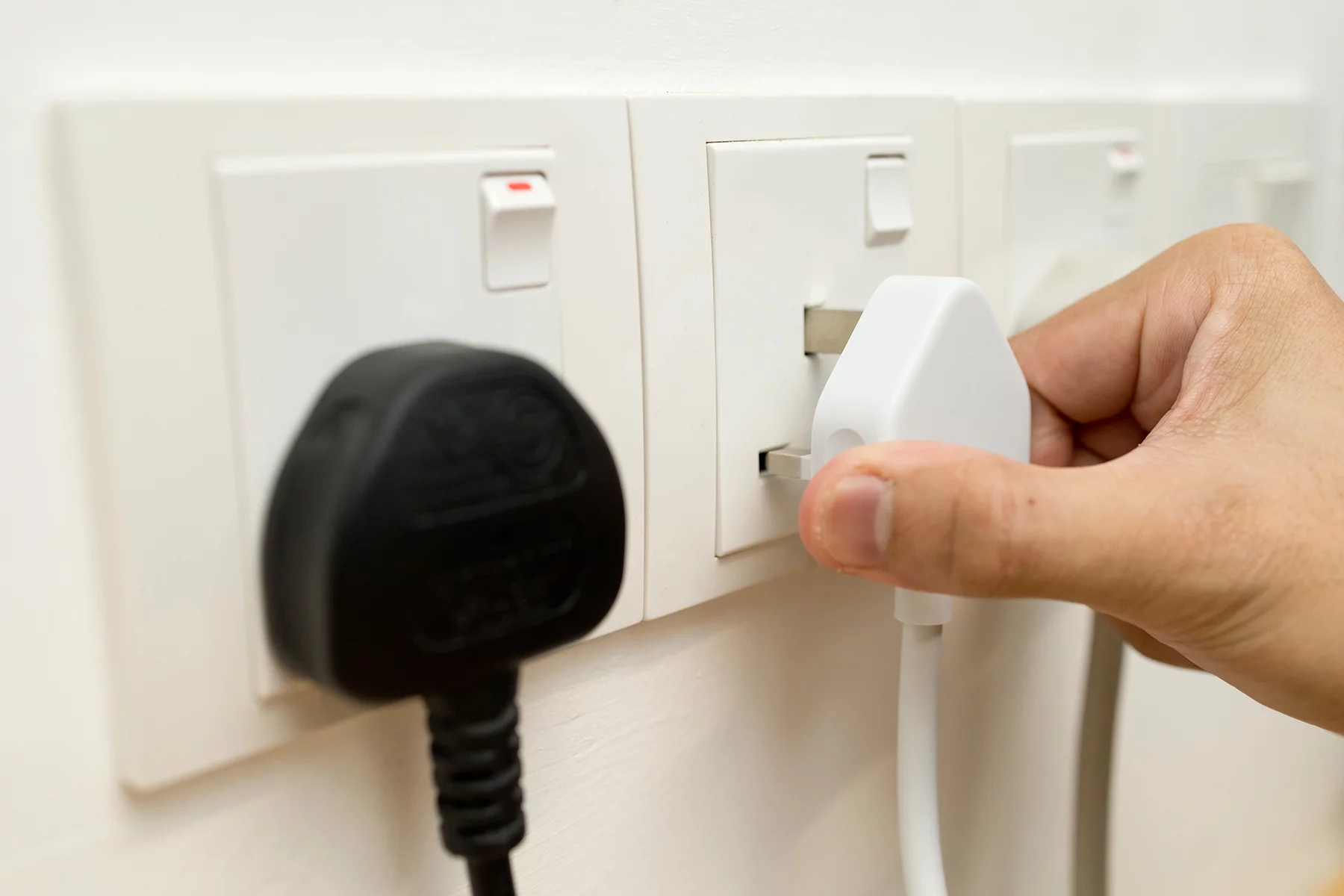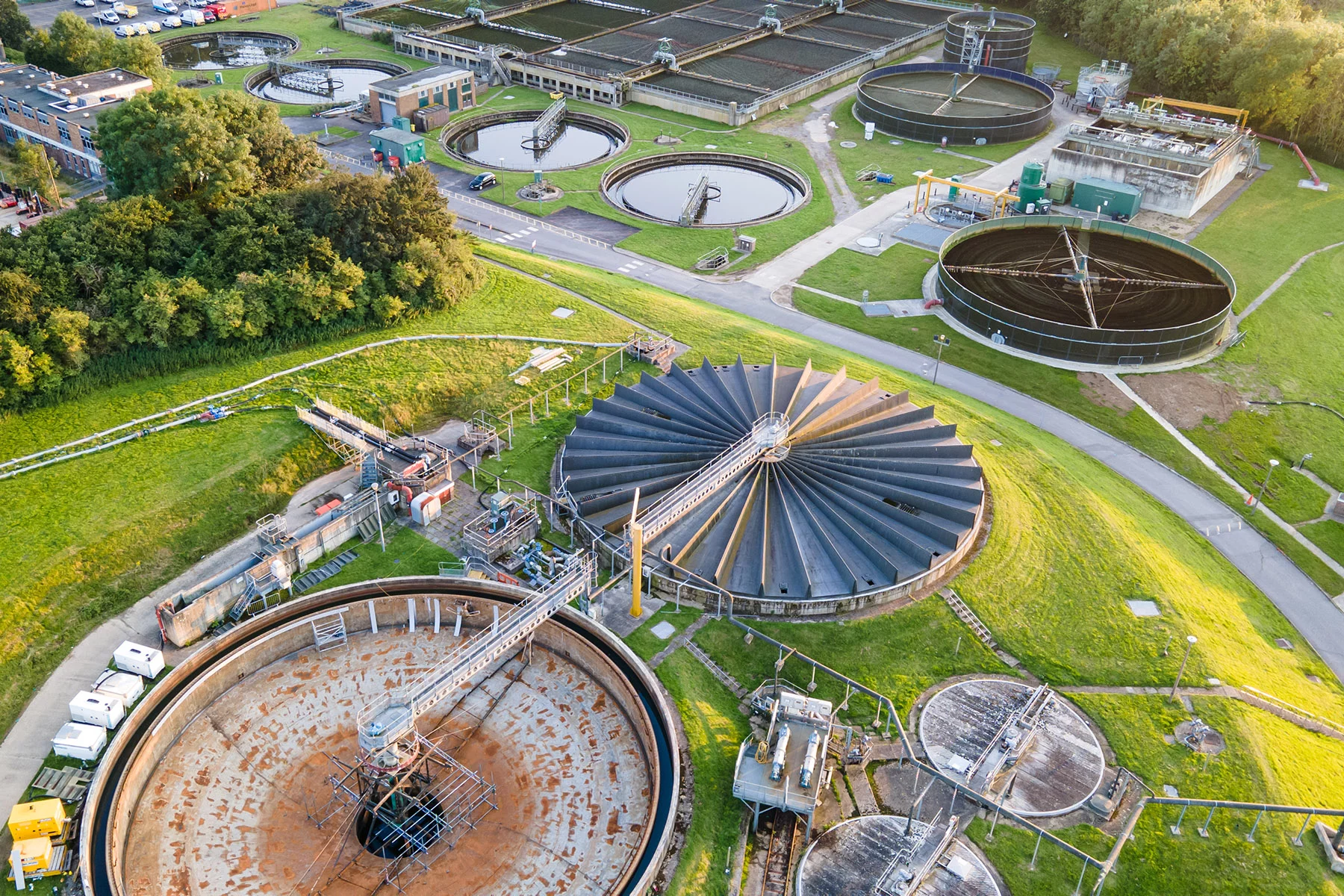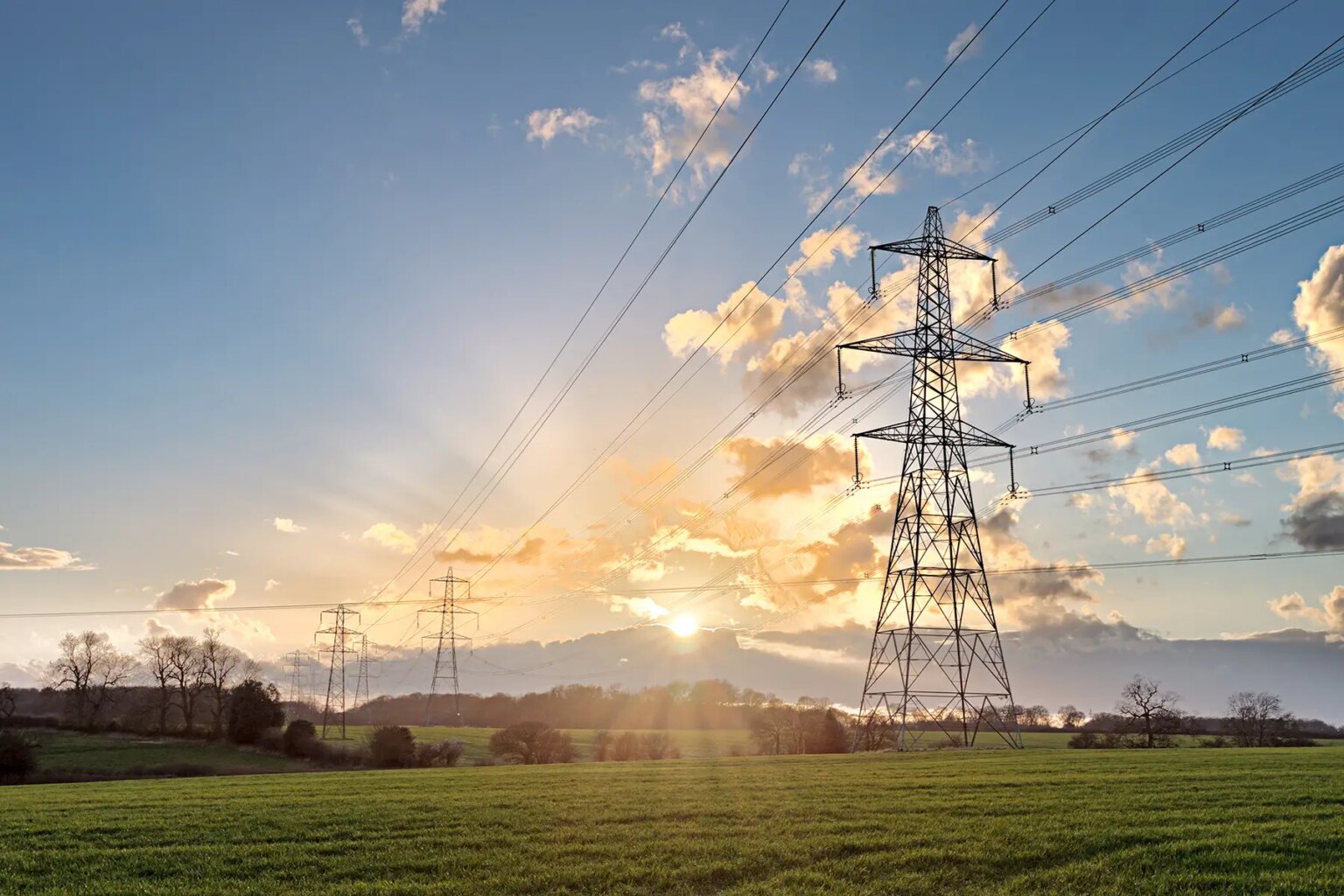Most homes in the UK are already connected to water, electricity and gas. However, this is not guaranteed in every situation.
If you’re renting property in the UK, your rental agent or landlord may be able to arrange your UK utilities. But if you are buying property in the UK, you will need to arrange your own utilities.
This guide provides all the information you need for connecting to UK utilities, including:
Uswitch
Confused about which UK energy provider to sign up with? Then check out Uswitch. Their easy-to-use platform compares tariffs from the biggest UK energy companies, giving you a range of quotes in minutes and helping you get the best deal for you. See what you could save on your energy bill and switch providers easily with Uswitch.
Utilities in the UK
Electricity, gas and water and readily available throughout the UK and are provided to a good standard. The UK ranked 12th in the world in 2017 in terms of quality of electricity supply. For water, it ranked equal second (along with six other countries) in 2016.

Utilities in the UK are largely privatized. However, you’re generally free to choose your preferred provider for gas and electricity. However, UK water utilities are often limited to the one provider operating in your area.
With a wide array of utility companies in the UK, connecting your house to water, electricity, and gas can seem overwhelming when first moving to the UK, especially if you are trying to connect UK internet, TV, and a landline phone at the same time.
However, you can access services that make things easier and help connect you with the utilities you need. For example, companies like Please Connect Me provide guidance on providers in your area and help with getting you connected.
There’s a good chance your new home already has gas, electricity, and water, especially if you are renting in the UK. In a typical situation, your only responsibility is to transfer those services into your name and check the meter readings.
Ofgem is the government agency that regulates the electricity and gas market in the UK. For water, Ofwat is the regulator for England and Wales. In Scotland, the Water Industry Commission for Scotland regulates providers and the Drinking Water Quality Regulator for Scotland (DWQR) oversees the quality of drinking water.
Electricity in the UK
UK electricity voltage is 230V (50Hz). Although this is standard voltage for Europe, it’s significantly higher than many other countries. Check which appliances are compatible.
The UK uses three-pin point plugs (type G), similar to Ireland, Cyprus, Malta, Malaysia, Singapore and Hong Kong. Because many countries use two-pin plugs, you may need an adapter if you bring appliances from your homeland.

You must get all electrical appliances in the UK used for business purposes safety checked once a year. Retailers that sell second-hand electrical products are advised to get them safety tested prior to selling, because they are liable for unsafe goods sold that cause damage or injury.
See this government guide for details on electrical safety at work, which you will need to be aware of if you run a business in the UK.
Electricity suppliers in the UK
The UK energy market is privatized. The largest electricity companies providing utilities in the UK are the big six. Between them, they provide around 90% of retail consumers and some three-quarters of British electricity generation. However, in recent years smaller and independent electricity companies in the UK are increasingly attracting customers.
You can usually choose between fixed and variable tariffs. You can also often get a better deal by combining your gas and electricity accounts with the same company. This is a dual fuel account.
The main electricity companies in the UK are:
- British Gas
- EDF Energy
- E.ON
- Npower
- Scottish Power
- Scottish and Southern Energy
Smaller UK energy suppliers include:
- Bulb Energy
- Cooperative Energy
- Green Star Energy
- Octopus Energy
- Ovo Energy
- Pure Planet
- Tonik
- Utilita Energy
Your choice of electricity company in the UK depends partly on your area. Generally, you can find the bigger companies nationwide.

If you’re unsure of which utility company is right for you, there are plenty of UK comparison websites just waiting to help you out. On these websites, you’ll be able to compare and contrast gas and electricity prices from the UK’s biggest energy providers. These comparison sites include:
Connecting and disconnecting electricity in the UK
If you move into a new home and there is no electricity connection, you will need to contact the National Grid to arrange a connection. Because it can sometimes take time to arrange for a technician to do this, it’s advisable to check as early as possible to avoid being left without utilities when you arrive. The company will usually charge for connection.
The National Grid is only in charge of the connection. It doesn’t supply electricity, however. For this, you will need to choose a supplier.
In the majority of cases, you will not need to get connected, especially if you are renting. However, you are expected to contact a UK electricity supplier to transfer electricity bills into your name to avoid billing confusion.
Normally the previous tenant or owner will have given the final meter readings to the utility companies. However, it is still important to take readings when you move in, to give to your chosen utility companies to ensure your bills are accurate.
When moving out of a property in the UK, you won’t need to have the supply disconnected. Just contact your supplier, inform them that you are no longer living at this address, and give them a final meter reading.
Changing electricity suppliers in the UK
You do not have to stay with the same company as the previous tenant or property owner, so you can switch UK electricity companies at this time if you prefer.
Many residents in the UK choose to keep with their existing energy supplier when they move home, so often it is just a case of informing your supplier of your change of address.
You are free to change supplier at any time, although if you have signed up to a certain period of time with a supplier and want to leave early, you may be charged.
Changing suppliers of utilities in the UK is quite straightforward. You can normally do this online or over the phone. All you will need is your postcode. Additionally, some comparison sites allow you to change providers through their site.
Electricity costs and tariffs in the UK
You can choose from different payment plans, so it pays to shop around. Options include fixed monthly rates, capped rates, unit rates, or prepaid meters (where you top up your supply using a key).
Each company has different plans which you can usually check on their website. Also, make use of comparison sites.
The current average charges for electricity in the UK are 14.37p per kWh, which works out at an average of around 20p per day. In addition to this is the standing charge, which is a fixed fee you pay to your supplier regardless of electricity use, plus VAT. Companies usually charge in the region of between £75–150 a year standing charge.
The UK currently ranks as the ninth most expensive country for electricity within the EU.
Reporting electrical faults and carrying out electrical repairs in the UK
Power cuts are rare in the UK but do occasionally happen. If you experience a UK power cut, check if the street lights are out or with your neighbors to see if they have power. In situations where the entire area is out, you will just have to sit it out until the UK electricity company gets the power back up.
If the power outage is just in your home, first check your electricity box to see if a switch has tripped. Otherwise, you will need to phone the emergency number of your UK electricity supplier. You will find the number on the welcome letter and the back of all your bills. See the Expatica guide to emergency numbers in the UK for a list of general contacts.
If you need to find an electrician for repair works, you can search for a registered electrician on the Registered Competent Person or the NICEIC websites. Online platforms such as TaskRabbit are another way to find professional help with repairs.
Making a complaint about an electricity company in the UK
If you have a problem with your electricity supplier in the UK, you should first try to resolve the complaint directly with them. If you are still unhappy with the outcome, you can take the complaint to the Energy Ombudsman.
Gas in the UK
Gas is also privatized in the UK. In general, companies offer combination tariffs including electricity and gas. Many homes have a mix of electrical and gas-powered facilities, with central heating and cooking equipment often run on gas.
You should perform a safety check on gas appliances annually. If you run a business or rent out accommodation, you will need to have your premises gas safety checked by a registered engineer once a year to avoid breaking the law.
Gas suppliers in the UK
Because gas and electricity are mostly supplied in a combined energy package, suppliers of gas in the UK are much the same as those for electricity.

An alternative to a centralized gas supply is to use gas canisters. You can buy small canisters from camping stores, home improvement stores, and shops such as Argos. You can use these for equipment such as gas heaters and portable cooking equipment. However, if you need larger canisters, you should try companies such as Calor.
Connecting and disconnecting gas in the UK
Similar to electricity, gas should already be connected to your home and all you will need to do is transfer the bills for the address to your name.
If you do need to get a gas supply connected, you will need to contact your local gas distributor. You can find information on the distribution network for the UK through the Ofgem website.
Gas costs and tariffs in the UK
Average gas costs in the UK currently work out at around 3.8p per kWh, which comes to around 24p a day (plus standing charge and VAT). Because companies generally offer combined energy tariffs, you can shop around to find the best deal based on how much gas and electricity your household uses.
The UK currently ranks 15th most expensive country in terms of gas prices per kWh within the EU.
Reporting gas faults and carrying out gas repairs in the UK
If you have a problem with your gas or suspect you have a gas leak, you should contact the emergency number of your supplier immediately. For more general problems, however, contact the gas emergency number which can be found in our guide to UK emergency numbers: 0800 111 999
You should never try and fix a gas problem yourself unless you are fully qualified as it is highly dangerous. You can find a registered gas engineer on the Gas Safe Register website.
Water supply in the UK
The water industry has been privatized in England and Wales. However, it remains public in Scotland and Northern Ireland. Throughout the UK, you typically must use your local water company.

You can drink tap water in the UK, although many people purchase filters and softeners to improve the quality. The water supply in the UK varies by region. London, urban areas, and large parts of southern England are noted for having hard water (with a higher concentration of minerals), in contrast to Scotland, Wales, northern England, and more rural areas which tend to have softer water.
The Drinking Water Inspectorate (DWI) provides a map outlining the water hardness by area, otherwise, most water suppliers in the UK provide tools on their websites where you can enter your postcode to get exact figures.
Water suppliers in the UK
Although private companies run the water supply in England and Wales, you are generally restricted to the provider for your region. This website can help you find the UK water supplier for your region.
Because water companies in the UK are regional suppliers, you will need to create a new account with the regional supplier if you move area.
In 2017, however, the water regulator Ofwat announced the opening of the business water utility markets in England and Wales, allowing businesses, charities, and public sector organizations the freedom to choose any water supplier. See if your business is eligible.
You can find out information on how your local water company is performing on the Discover Water website.
Connecting and disconnecting water supply in the UK
You must contact your regional water supplier if you need to get connected to the local water supply when you move into a new place. You may incur a fee for this, although connection charges vary across regions.
Similar to gas and electricity, you will find running water supply in most accommodation and in rented property is normally the landlord’s responsibility. All you will need to do is get the bill for the property registered in your name.
When you move out, you won’t need to get the supply disconnected. Just inform your supplier of the date you are moving out and provide them with a final meter reading.
Water costs and tariffs in the UK
UK water bills comprise two charges: one charge for the water you consume, and another charge for the treatment of sewage and wastewater (for example, water from showers, toilets, and any other water that runs from your property into the public sewer system).
You will either have a metered service, where you pay according to what you use, or a fixed tariff where you pay a set annual amount spread across the 12 months.

Most suppliers use a metered service as standard. If your home doesn’t have a meter, many companies provide a meter-fitting service free of charge.
Although water companies in the UK offer different tariffs, the government regulates all suppliers to ensure consumers get a good deal. Average costs in 2019 are around £415 a year (just under £35 a month) but vary across different regions and property types.
Reporting water leaks/faults and carrying out water repairs in the UK
If you have any trouble with your UK water supply, contact the local authority that supplies your water. You will find the number on bills, welcome letters, and company websites.
To find an approved plumber, including emergency plumbers, you can search the WaterSafe or Water Regulations Advisory Scheme (WRAS) websites.
Making a complaint about a water company in the UK
If you want to complain about the service provided by your local water supplier, you should contact their complaints department and follow their initial procedure in the first instance.
You can take unresolved complaints to the Consumer Council for Water (England and Wales) or the Scottish Public Services Ombudsman (Scotland).
Energy efficiency and green alternatives in the UK
The UK scores highly when it comes to energy efficiency and sustainability. According to a 2018 report, it ranks fourth globally behind Germany, Italy, and France.
There are various government energy efficiency schemes for households, including for example:
- the renewable heat incentive (RHI) where you can save money by switching to an energy-efficient supply;
- the Green Deal which helps homes make energy-saving improvements;
- home energy grants to help pay for one-off energy-saving improvements
More information on government-backed schemes for homes and businesses is available on the OFGEM website.

Tips on how to make properties more energy and water efficient can include, for example:
- loft/wall cavity insulation and double-glazing to reduce on heating bills;
- installing renewable energy sources such as solar panels or wind-power systems on the property;
- using energy-efficient appliances;
- having a low-flush toilet and low-flow taps installed;
- using water recycling systems such as rainwater harvesting or greywater re-use systems
The best green energy supplier in the UK in 2019 is Bulb, with Npower the highest-scoring of the big six companies. However, several companies in the UK use 100% green electricity.
Paying utility bills in the UK
Most companies give you the option of how to pay bills. Typically, they will send a bill every quarter (three months) and you should pay this within a few weeks of receipt. More people these days are choosing to pay their bills monthly by direct debit.
If you are using a meter for any utilities in the UK, the company will send a representative once every few months to take a reading. If no reading is done, the company will base your bills on estimated usage until someone is able to read the meter. Any over-payment or under-payment will be taken into consideration on your next bill.
If you don’t want to pay bills by direct debit, you can usually pay by cash or cheque at a local post office or by credit/debit card over the phone.
Useful resources
- Ofgem – regulator of the UK energy market
- Ofwat – regulator of the water market in England and Wales
- Water Industry Commission for Scotland – regulator of the Scottish water industry
- Utility Regulator – regulator of energy and water in Northern Ireland
- Citizens Advice – provides an overview of how the UK utility system works.





